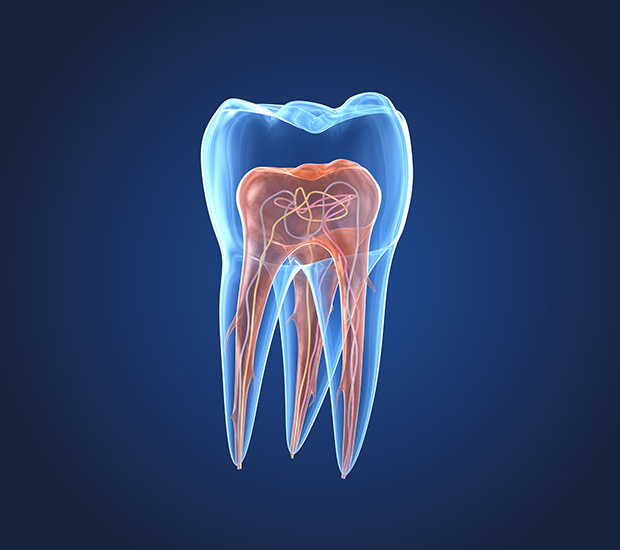What is an Endodontist Philadelphia, PA
People may not realize that there are multiple forms of care within the field of dentistry. The teeth are more complex than some people realize, with layers of protection, nerves and blood vessels, while also connecting to the gums and jawbone. If something happens to any of the layers of the tooth, the body can feel repercussions from the damage.
The type of issues an endodontist treats
A professional endodontist is a dentist who completes the extra training to specialize in maintaining teeth through procedures that involve the soft tissue of the teeth. The soft tissue of the teeth is also known as the pulp, which contains the nerves and blood vessels of the tooth. When a patient seriously damages his or her teeth, it is important to seek professional care from a specialist. A general dentist will not have the experience or tools to treat serious damage, where an endodontist does.
The type of issues an endodontist treats
While minor issues such as plaque buildup or even a minor chip in the tooth may only need the services of a general dentist, there are many other issues that require specialist services. An endodontist provides treatment for:
- Chipped teeth
- Broken teeth
- Infected teeth
- Cracked teeth
- Inflamed/infected dental pulp
- Dental abscess
These are only some of the potential conditions that endodontists provide a more detailed level of care. Endodontists have the experience to accomplish more than simply cleaning a tooth. If a patient is struggling with a broken or cracked tooth, the damage can spread to the pulp. Once the damage reaches the pulp of the tooth, the pain will intensify and eventually cause an infection.
An endodontist will be able to identify the source of the infection, remove the infected or inflamed pulp, and then cover the tooth back up. This way, the patient will be able to continue using the natural tooth and not feel much or any pain. Contrary to popular stigma, an endodontist does not want to immediately extract teeth. In fact, an endodontist will do everything possible to protect the tooth in question.
An endodontist values natural teeth over artificial ones. Having a tooth is better than not having a tooth, since the process of resorption will leech calcium from the jawbone and alter the appearance of one's face. While we live in a world where there are multiple options for artificial teeth replacements, the natural teeth will always be the preferred teeth of professionals.
By removing the infected root in a root canal procedure, an endodontist can save the shell of the tooth and relieve the patient of all pain. The endodontist will then cover the tooth up with a crown that protects the empty space of the root and allows the individual to continue eating whatever he or she likes.
Check out what others are saying about our dental services on Yelp: What is an Endodontist Philadelphia
The process
While some general dentists offer basic root canal services, they will not have the necessary experience or technology to deal with serious cases. Thus, visiting an endodontist is crucial for anyone who is experiencing intense pain in their teeth. The process for visiting an endodontist is fairly simple. The first step will be to either call ahead or receive a recommendation.
The endodontist will attempt to schedule you in for an appointment as soon as possible. However, if the situation is an emergency, then the endodontist will attempt to see you immediately. In some cases, an endodontist may offer weekend services for special cases. After scheduling an appointment, the endodontist will recommend the most effective method to ease the pain while waiting for the appointment.
In most cases, using an ice pack wrapped in a cloth to the cheek can help. In other cases, over-the-counter pain medication may help. Ask an endodontist for advice and recommendations on what to do. At the appointment, the endodontist will examine the tooth and ensure that a root canal is the most effective treatment. If a different treatment is necessary, the endodontist will explain the details and answer any questions before beginning.
If the patient needs endodontic surgery, then the endodontist will use anesthesia so the patient does not feel any pain during the procedure. If the patient is going through surgery, then the endodontist will put the patient to sleep. When the surgery is complete, the patient will wake up and be sent home with specific directions about proper care. Depending on the procedure, the patient may need to schedule a ride home and avoid driving for a few hours.
It is also recommended that you take at least the rest of the day off to heal and maybe even the next day. It may take a few days before the teeth are fully functional and ready to eat food. An endodontist will go over all of this with you prior to the surgery so that you can prepare ahead of time.
If you live in the Philadelphia area, call (267) 515-6162 to schedule your dental exam so that you can remain in good health or receive treatment for a current condition.
Questions Answered on This Page
Q. What treatments does an endodontist offer?
Q. What is the process for endodontic services?
People Also Ask
Q. What should I do if my teeth are sensitive to hot or cold foods?
Definition of Endodontic Terminology
- Cementum
- Cementum is that bone-like tissue that forms the outer surface on the root of the tooth.
- Dental Pulp
- Dental pulp is the inner-most layer of the tooth with connective tissue that contains blood vessels and nerve tissue.
- Dentin
- Dentin is the inner layer of the tooth structure that is immediately under the enamel and surrounds the dental pulp.
- Direct Pulp Cap
- A direct pulp cap is a procedure in which a professional treats exposed pulp with a therapeutic material to help the tooth heal.
- Enamel
- The enamel is the hard calcified layer that covers the entire tooth and is subject to interaction with multiple substances.
- Endodontist
- An endodontist is a specialist who focuses on treating issues, diseases and conditions that affect the inner-most layer of the tooth, the dental pulp.
- Pulpectomy
- A pulpectomy is a procedure that involves the complete removal of pulp tissue from the root canal in a tooth.
- Pulpitis
- Pulpitis is another term to describe the inflammation of the dental pulp due to an injury or infection.
- Pulpotomy
- A pulpotomy is a procedure involving the removal of a portion of diseased or infected pulp in order to protect the healthy portions of the pulp and teeth still in the mouth.
Back to top of What is an Endodontist




